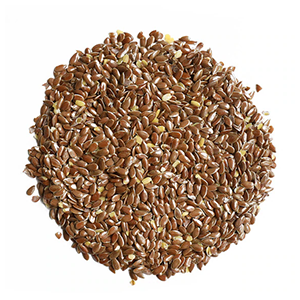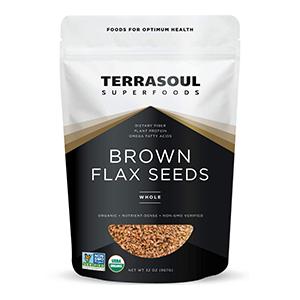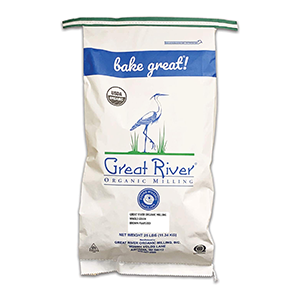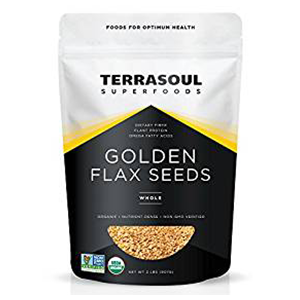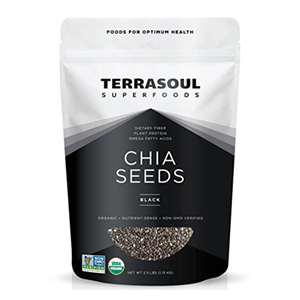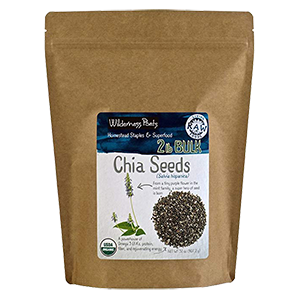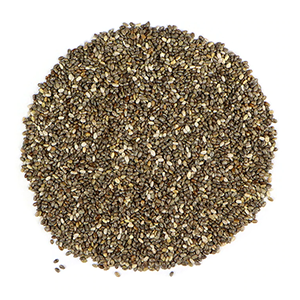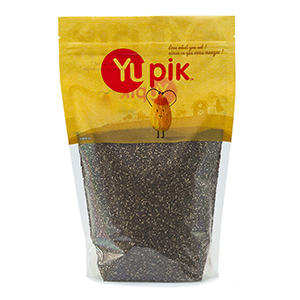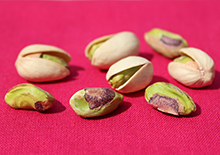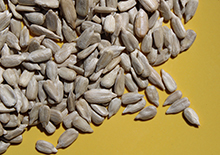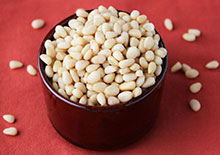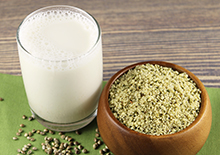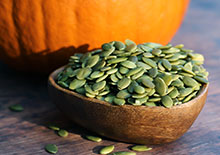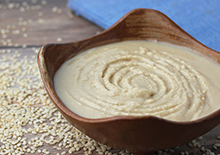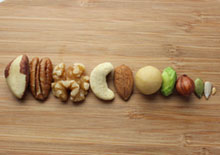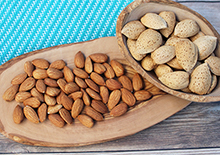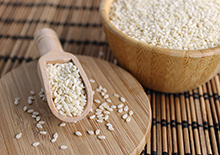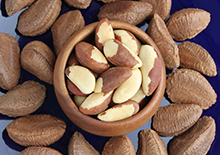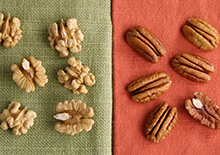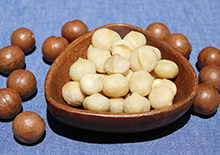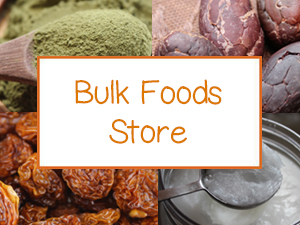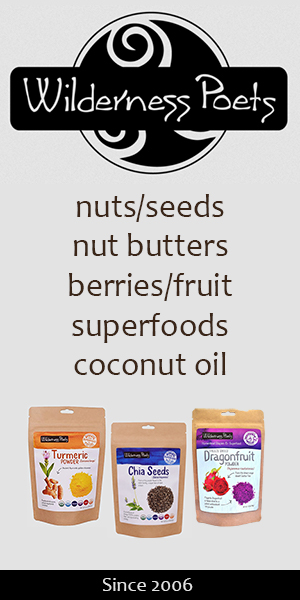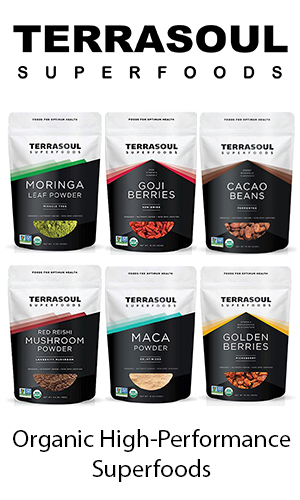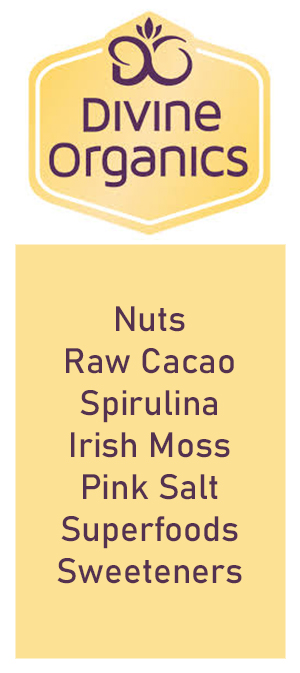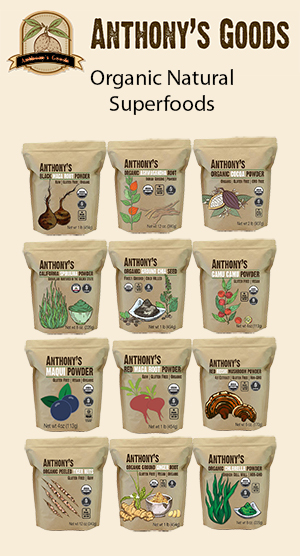- Home
- Nuts and Seeds
- Chia Seeds Vs Flax Seeds
Benefits of Chia Seeds Vs Flax Seeds, Which is Better?
Weight Loss | How to Eat | Blood Sugar | Omega-3 Fatty Acids | Nutritional Benefits | Precautions | Shop
1) Flax Vs Chia Seeds for Weight Loss
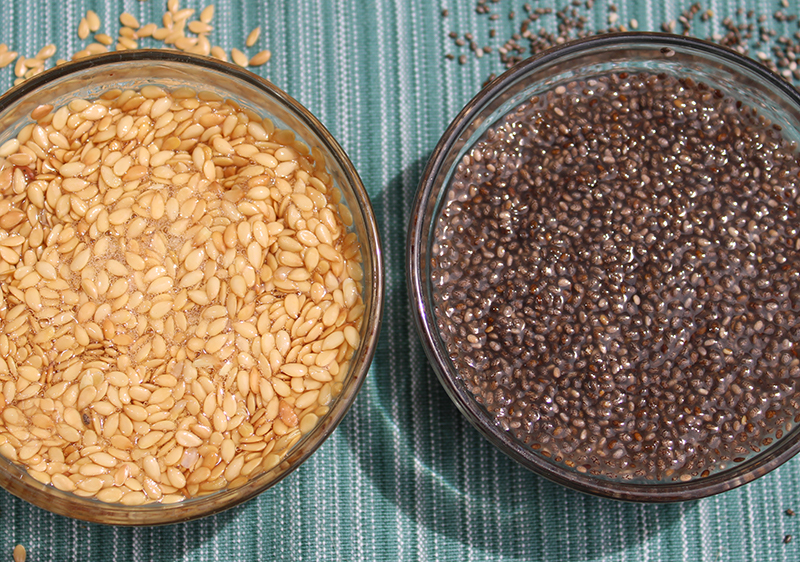
Flax and chia are two fairly well-known superfoods that support body weight management.
However, when it comes to weight loss diets, flax is the star of the show. Yes, chia is still good, but flax is even better.
That's because golden and brown flax seeds are higher in soluble fiber, a mucilage or gel-like substance that occurs when the seeds are soaked in water. While chia is actually higher in total fiber compared to flax, chia seeds only contain about half as much soluble fiber.
Table of Contents
Weight Loss | How to Eat | Blood Sugar | Omega-3 Fatty Acids | Nutritional Benefits | Precautions | Shop
Soluble fiber, when consumed, forms a protective film over mucous membranes on its transit through the digestive tract. This property can help relieve gastrointestinal inflammation often common in obesity-associated disorders.
Eating dietary soluble fiber is also believed to reduce fat absorption yet extend one's feeling of fullness. Consequently, flax acts as a natural appetite suppressant, providing less desire to eat high-carb foods that may cause weight gain.

Flax and its dietary soluble fiber is a prebiotic food for maintaining a healthy gut microbiome, balancing cholesterol and supporting cardiovascular health. All of which are important things for overweight individuals looking to reduce unwanted pounds.
When evaluating the benefits of chia seeds for weight loss, one advantage is that they have less fat and calories compared to flax. In addition, chia's higher insoluble fiber works to promote bowel regularity.
2) How to Eat Chia Vs Flax
Many say that you can eat straight chia seed no problem and get all of its health attributes. It is our strong opinion, however, that chia seeds like flax seeds are best ground OR soaked and blended for highest nutritional uptake.
In other words, don't simply sprinkle either of these whole seeds on a salad like you would other nuts and seeds. Most people know this about flax seeds, but "how to eat chia" is somewhat controversial.
So, just like you wouldn't eat a handful of whole flax, chia seeds are pretty much the same. They are not only hard to completely chew, neither are very palatable in this form. Because they are both so hydrophilic, unsoaked seeds will often cause digestive issues as well as dehydration as they suck up any bodily fluids they come into contact with.
Using them as a ground "flour" can work if you combine them with foods that contain a good amount of liquid and/or drink lots of water. Ultimately, soaked whole seeds or ground seeds are great additions to blended drinks like shakes and smoothies. This will add thickness and the blending process will increase nutritive potentials.
The typical serving size of either flax or chia is about 1-2 Tablespoons, once or twice a day.
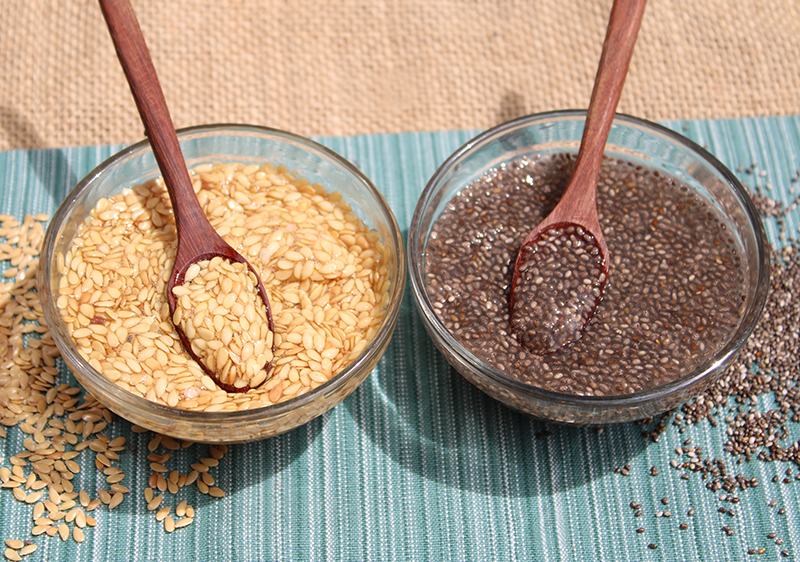
3) Chia Seeds Vs Flax Seeds for Blood Sugar
The main component in chia and flax that encourages balanced blood sugar levels is FIBER.
While you can't really go wrong with eating either, chia seeds are considered the slightly better option when it comes to slowing the release of blood sugar.
In some research comparing flax and chia, chia appeared to convert glucose into a slow-release carbohydrate reducing blood sugar spikes after consumption.
4) Chia Seeds Vs Flax Seeds for Omega-3's
Both chia and flax are known for their higher amount of polyunsaturated fats, specifically the omega-3 fatty acid called ALA or α-linolenic acid. This is the plant-based essential omega-3 also found in hemp seeds and walnuts.
Glossy coated flax seeds are, however, the highest source of ALA omega-3 out of all plant species. Flax oil, also called linseed oil, in fact has a long history of use as an oilseed crop, utilized extensively for industrial purposes.
Food-grade flax oil, as an omega-3 supplement, has been widely endorsed by Western health enthusiasts ever since the 1970s. Dietary ALA intake can be nutritionally helpful for many things like controlling inflammation, improving cholesterol levels and providing cognitive support as ALA converts to EPA and DHA in small amounts.
In contrast to chia seeds, flax also contains a better ratio of omega-3 to omega-6 averaging about 6 times more omega-3 than omega-6. According to nutritional data, chia's ratio is still good at about 4 times more omega-3 to omega-6.
Because polyunsaturated fats are very sensitive to heat and light, cooking with omega-3 rich oils or foods like flax and chia is not recommended.
As far as shelf-life, flax seeds can easily go rancid, whereas chia is far more stable. The high oil content in flax seeds also give them a stronger flavor over chia's more neutral taste.
5) Nutritional Benefits of Chia Seeds and Flax Seeds
Whether you're making a chia pudding or flax crackers, each have their health advantages. But, what about their vitamin and mineral comparison?
When going through the data on each of these seeds, it is clear that CHIA may contain way more CALCIUM than flax by nearly twice as much, plus more iron, phosphorus, selenium and niacin. Flax however is the winner when it comes to THIAMINE content but also contains slightly more copper, magnesium and potassium than chia seeds.
Both of these superfoods contain varying amounts of antioxidants. Flax seeds are known for their unique polyphenols called lignans which are natural phytoestrogens not found in the chia seed. They also contain ferulic acid, chlorogenic acid and gallic acid.
The specific antioxidants found in chia seeds are chlorogenic acid, caffeic acid, kaempferol, myricetin and quercetin.
Each of these two varieties, as you see, have different health advantages. It might be beneficial to use a combination of both to round out nutritional uptake.
Precautions:
When analyzing chia seeds vs flax seeds for your own personal use, it is best to tailor intake to your own unique health objectives and/or issues.
Shop Related Products (About Affiliates & Amazon Associate Paid Links)
Affiliate Disclaimer: This section contains affiliate product links. If you make a purchase through our recommended links, we receive a small commission at no additional cost to you. Thanks for the support.

